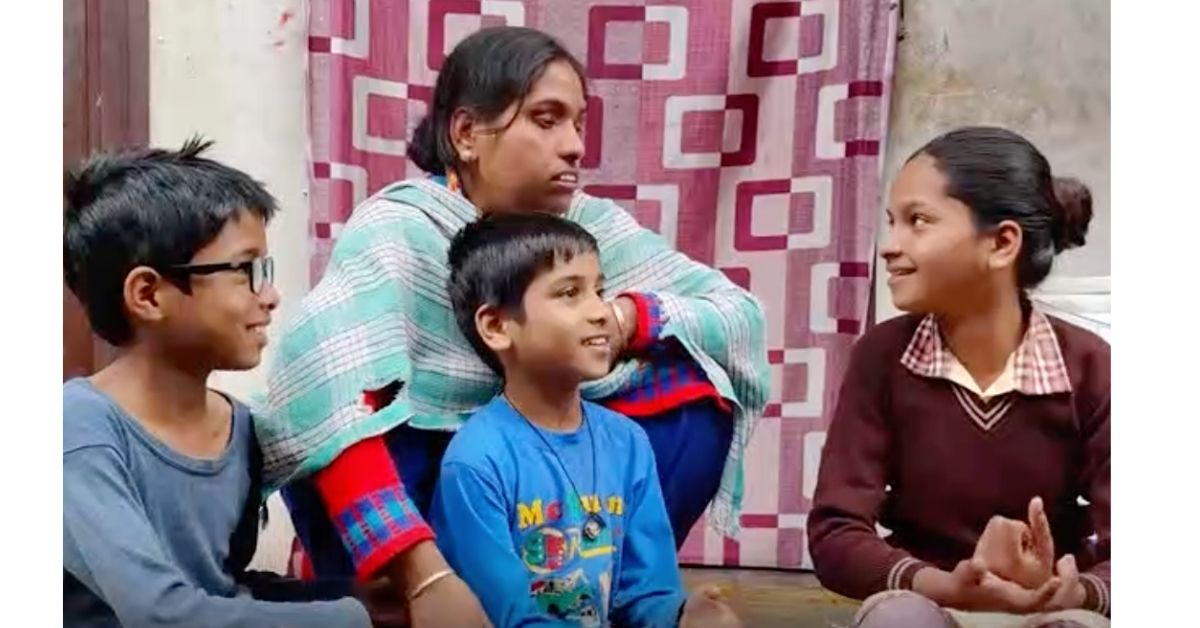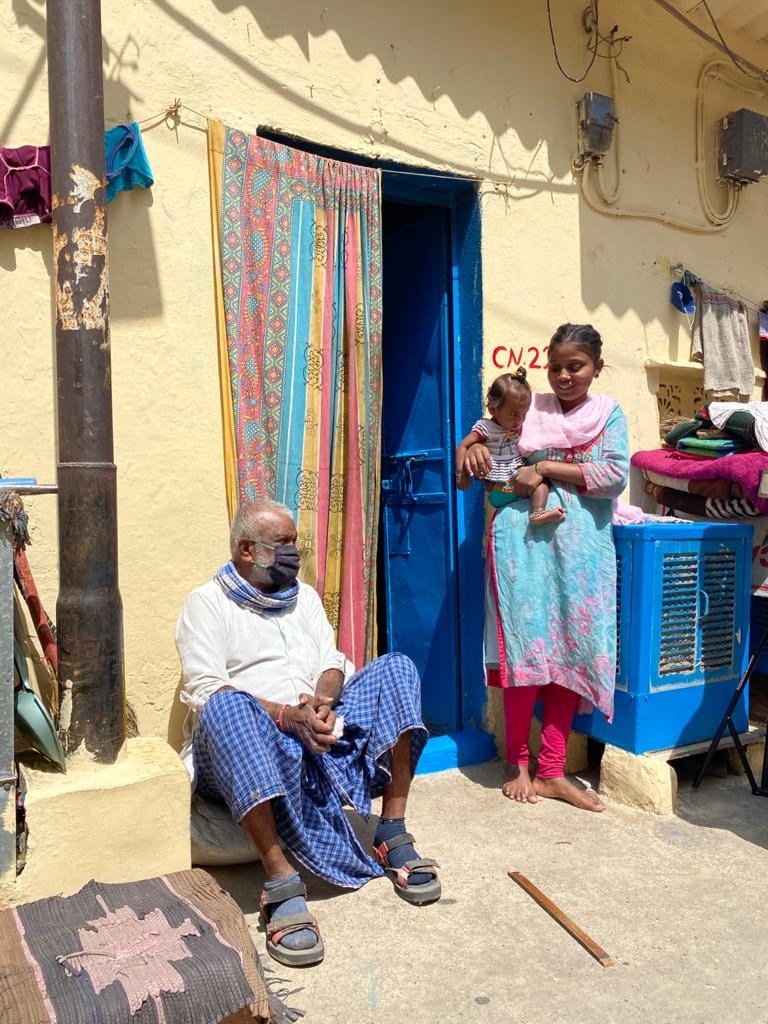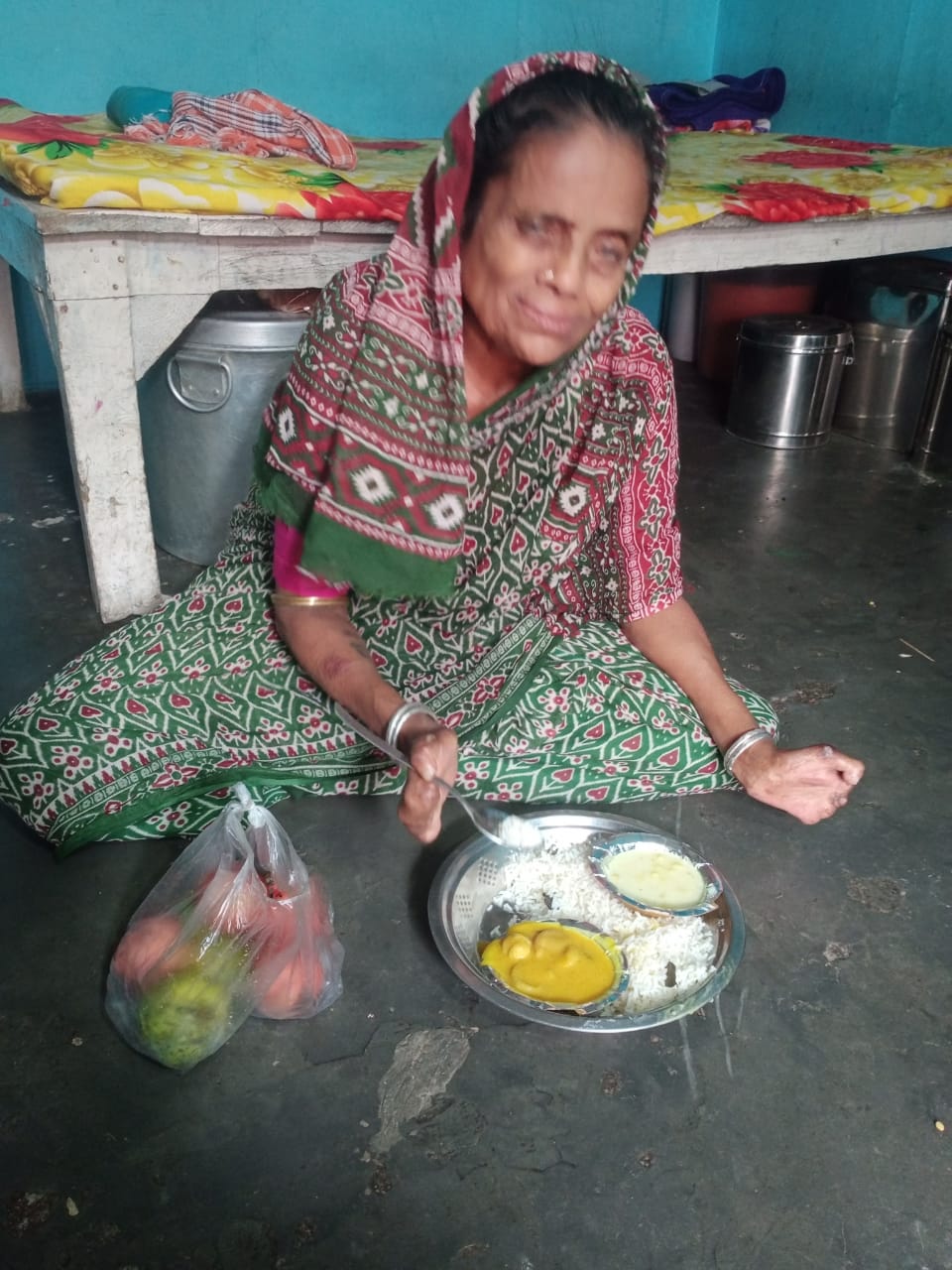It’s a cold winter morning in the national capital. As a matter of routine Anita has woken up before sunrise. She busies herself with making food for her three children. A little after 8.30 am, she passes on the responsibility of holding guard to her eldest and leaves for work.
Later, Anita walks towards the main road and stations herself at the signal, where she spends the rest of her day begging for alms.
Asked why she doesn’t look for another job, she says, “Kaun naukri dega, didi? Hum tho kusth rogi hain (Who will give me a job? I am a leprosy patient).
On a good day, she says she earns about Rs 100.
Anita is among the 52 families in Delhi’s Anand Parbat area that houses close to 30 people affected by leprosy.

These families are treated like outcasts by society, and any contact with them is shunned – all because they are leprosy patients. It is hard to imagine that this systemic isolation of leprosy patients by the larger society continues in 21st century India.
But, for all these families, Jaya Reddy is a true guardian angel. Having been brought up by parents afflicted with leprosy, Jaya has an innate ability to understand and empathise with their plight. Speaking to The Better India, Jaya says, “This is my life – I don’t know any better, and wouldn’t trade it for any other life either.”
Adding to this, Anita says, “Jaya didi is a messiah for us.” She adds, “I am the sole earning member of my family. My husband is no more and I have three children to support. While on most days I go out to beg, there are days when I am unable to. On all such occasions, Jaya didi brings us ration and food. Even the books that my children need for school are provided by Jaya didi.”
Jaya’s father worked tirelessly for the community, until his death a few years ago. “I started from where he left,” says Jaya. At the colony, there are leprosy patients aged 30 years and above and each one of them has a different degree of disability caused by the disease.
‘I was shunned as a child.’

Recollecting her childhood, Jaya says, “I have faced immense pain while growing up. People would always look at me as though I was strange. Even when my parents needed help dressing their wounds, they would be turned away from hospitals and clinics.” This taught Jaya the need to be resilient. Even in school Jaya says that once the teachers came to know that her parents were affected by leprosy, she was treated differently.
“I was made to sit on a bench all alone. Other students were dissuaded from mingling with me or even coming close to me. They acted as though I was carrying some bacteria that I would pass on to them,” she says as she chokes up.
Today, however, she says that things are much better. There is so much more awareness now.
Jaya spends her entire day working for the people in her colony. She says, “It is not as though I work for some organisation and get paid a salary for it. I do this because I have lived their life and know what it is like. My day begins early and I do everything from helping in basic first aid for the patients to getting their paperwork for pension or even getting their voter ids, etc. made.”
The reason Jaya needs to take on this responsibility is because of how the community is often treated. She says, “If they were to go and stand in line at a government office they would never get their work done. They would often get pushed from one desk to another. Their physical condition often does not allow them to keep standing for such long hours. It’s a terrible life they lead.”
Having completed her education until Class 10, Jaya says that her source of income pre-COVID-19 came from her job as a caregiver for patients in their homes. “Now with COVID-19, I have stopped visiting patients’ homes. That also means that I have no source of income. My son works at an organisation and we run the household with the money he makes.”
Moreover, breaking the stigma attached to leprosy has been an uphill task.

She says, “Very often one is forced to lie about where they come from. If people find out that they are from the leprosy colony, no jobs are offered to them.”
While there are a few organisations working on rehabilitating leprosy patients, there is a long road ahead. Rotary is one such organisation and Deepak Kapur, Head, Rotary Club Alliance for Leprosy Control says, “On World Leprosy Day [30 January 2022] we must advocate for the inclusion of leprosy patients into socio-economic and cultural structures, empower them to stand up for themselves, strengthen the disability prevention and medical rehabilitation (DPMR) services and work towards the elimination of leprosy from India.”
Jaya is a lone warrior who has been working tirelessly for over two decades with leprosy patients.
If you would like to reach out to her and offer support, please call +91-9717924057.
(Edited by Yoshita Rao)
No comments:
Post a Comment